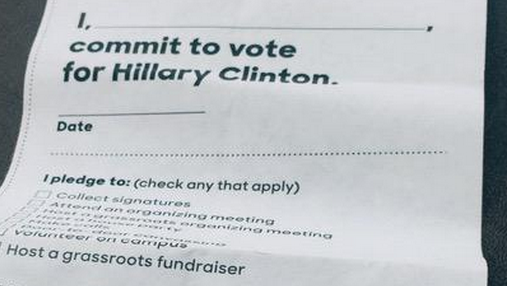Brand loyalty to Hillary Clinton is stumping some commentators. Stephen L. Carter, is a Yale law professor, but he is also a branding savant. His recent Bloomberg View column is a primer on how brands impact loyalty.
 He explains the theory of trademarks in economic terms: What you are willing to pay for a product is the sum of it price in money plus search costs–what it takes to find and evaluate alternatives–plus risk, the cost of making a bad choice. Brands are known and familiar–reducing the search cost and increasing the price people will pay. This brand premium is the whole goal of branding.
He explains the theory of trademarks in economic terms: What you are willing to pay for a product is the sum of it price in money plus search costs–what it takes to find and evaluate alternatives–plus risk, the cost of making a bad choice. Brands are known and familiar–reducing the search cost and increasing the price people will pay. This brand premium is the whole goal of branding.
Brand Loyalty Example
“Suppose the consumer has become unhappy with her preferred toothpaste for some reason, or can’t find it on the shelf. Now she has to invest more resources in deciding which one to buy instead. This necessity will have the effect of reducing the price she is willing to pay in money. She not only has to expend resources but also has to be compensated for the risk that she won’t like the new toothpaste as much as the old one,” writes Professor Carter.
Are the search costs of considering GOP contenders just too high? Is the risk of making a mistake worth it? Hillary is a known quantity. The theory of trademarks could drive brand loyalty. If voters are like toothpaste buyers, perhaps voters will “buy” her story.
